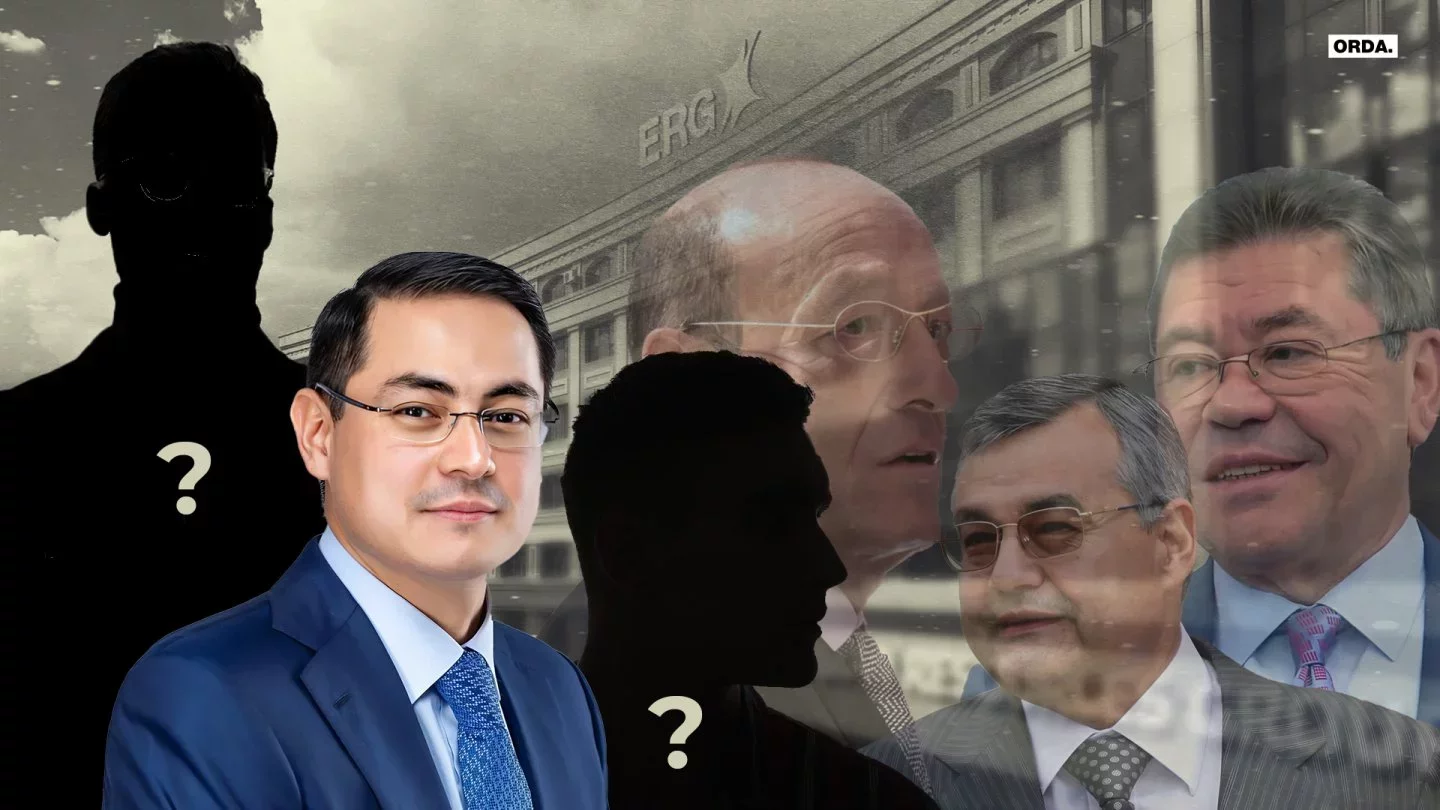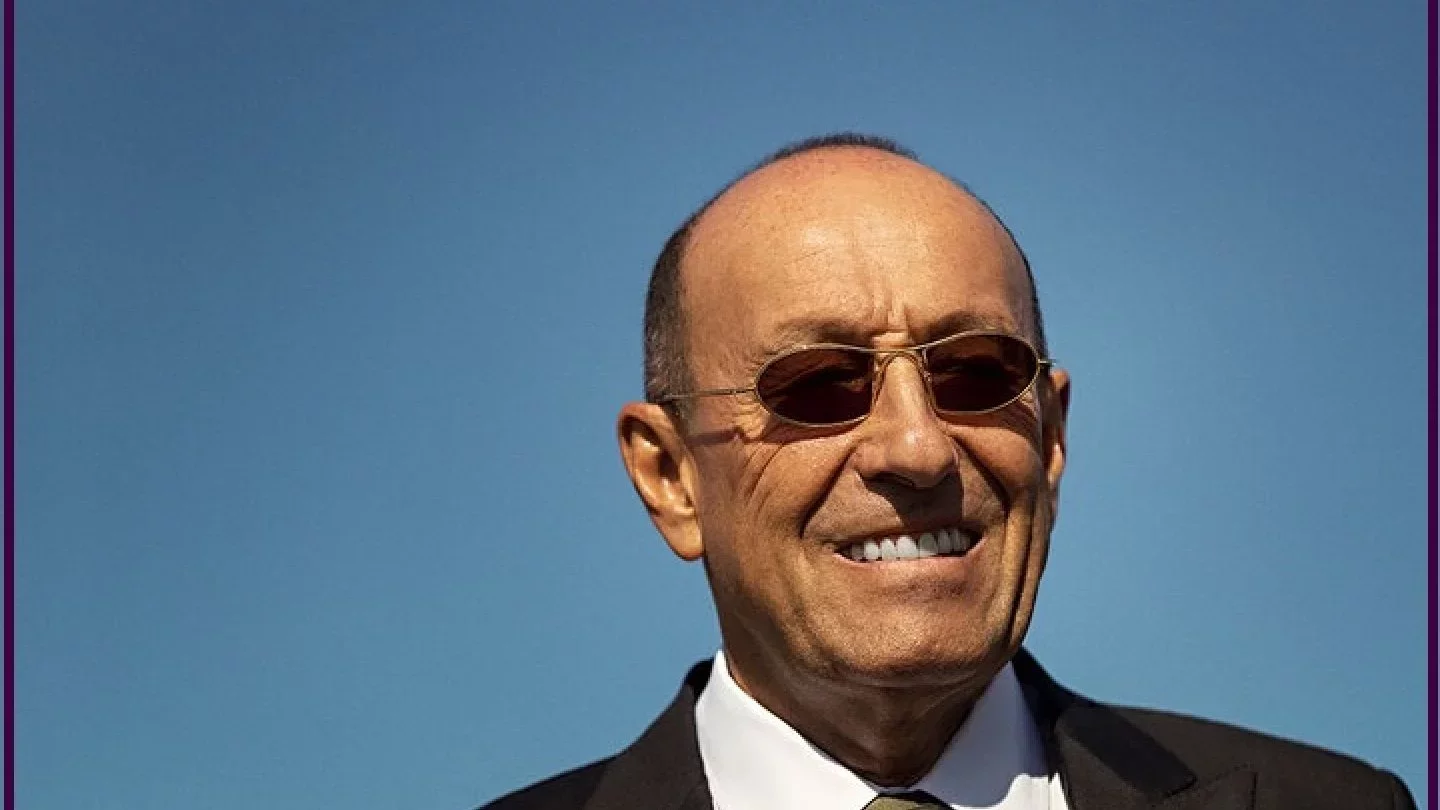What Awaits ERG?
 Photo: Orda
Photo: Orda
This week, news about a proposal to buy a share in ERG, one of the largest mining companies in Kazakhstan and globally, made international headlines.
Orda.kz’s financial analytics team has looked into the matter.
ERG’s largest shareholder is the government of Kazakhstan, which holds a 40% stake. Historically, the company was under the control of the so-called “Eurasian Troika” — Alexander Mashkevich, Patokh Chodiev, and Alijan Ibragimov — each owning about 20%.
Who Replaced Mashkevich?
News regarding the deal surfaced on the thirtieth day after the passing of Alexander Mashkevich, one of ERG’s founders and a prominent figure in Kazakhstan’s mining sector.
A native of Kyrgyzstan and later an Israeli citizen, Mashkevich built his business empire in Kazakhstan. Following a long illness, he passed away and was buried in a Jewish cemetery in London. In Jewish tradition, the thirtieth day after death is marked by a visit to the grave and the recitation of religious texts.

Mashkevich had stepped away from ERG due to illness and entrusted his interests to Eduard Surlevich. During a separate investigation, Orda.kz initially believed Surlevich was his son-in-law.
However, Surlevich is Alexander Antonovich's nephew, as documented in the Tel Aviv arbitration court.

Eduard Surlevich is the son of Elena Surlevich, the sister of Alexander Mashkevich's wife Larisa.
Big Money
Bloomberg reported in March about significant disagreements among the ERG stakeholders.
Mashkevich and Chodiev were looking to sell $1 billion worth of financial assets, including banking, insurance, and brokerage firms. A potential buyer was a Kazakhstani businessman of Russian origin, Timur Turlov, who controls the Freedom Holding group.
Shukhrat Ibragimov disagreed and went to court to freeze the potential sale.
On March 21, Mashkevich passed away.
One month later, on April 21, Reuters reported that American investor James Cameron had submitted a $5 billion offer to buy ERG. On the same day, Shukhrat Ibragimov responded via ERG’s press service, stating no sale discussions were underway and the company was operating in line with its current development strategy.
James Cameron is a relatively unknown figure but is linked to Russian business circles through his previous role as an independent director at Petropavlovsk PLC, a Russian gold mining company. This raises questions about whose interests he represents.
Cameron’s offer was reportedly submitted in late 2024, suggesting it may have been rejected or left unanswered.
Mashkevich and Chodiev were likely ready to sell, while Ibragimov was not.
An Offer You Can Refuse
ERG also produces gallium — a byproduct of aluminum mining — which, while not a rare earth element, is essential for semiconductors. ERG produces about 20% of the global gallium supply.
In November 2024, Donald Trump was elected U.S. President. During his campaign, he pledged to reignite a trade war with China. Analysts anticipated retaliation.
China banned gallium exports to the U.S., a blow to chip production.
ERG’s 2024 performance data isn’t public yet.
In 2023, UK-registered affiliate ENRC Management reported $6.5 billion in revenue and a $142 million loss, largely due to sanctions on Russia — a major client — and the ongoing war in Ukraine.
At the end of 2022, revenue totaled nearly $8 billion, and profit was almost $1 billion.
Debt levels, primarily to Russia’s VTB and Sberbank, were at $6.3 billion by the end of 2023. With restored supply chains, ERG could again generate substantial profits, making the $5 billion bid appear undervalued.
Going Domestic
Among the Troika, Shukhrat Ibragimov stands apart as a citizen of Kazakhstan.
He has pledged, through Kazakhstanskaya Pravda, to reinvest ERG’s profits back into Kazakhstan.
Given that the combined stake of the Ibragimov family and the government is just over 60%, it is not hard to assume how Ibragimov was able to take the reins.
There is also no sign that Kazakhstan’s government plans to sell.
Amid the U.S.-China trade war over metals, the state’s priority is likely to retain control over strategic resources.
In that context, selling ERG for $5 billion would not only be short-sighted but strategically damaging.
Meanwhile, the other shareholders appear eager to cash out and ride off into the sunset, and then come what may. In the end, their heirs will have to live not in Kazakhstan but far from the ERG mines.
Original Author: Editorial
Latest news
- The War in Iran Opens a Window of Opportunity for Kazakhstan’s Oil Sector, Analysts Say
- Iran Conflict Escalates Beyond the Gulf: What Kazakh Experts Say About Risks for Central Asia and Kazakhstan
- Kazakhstan Prepares Possible Evacuation of Its Citizens From Iran
- LRT in Astana Is Reaching the Finish Line: The Launch Is Expected in the Coming Months
- Kazakhstan Ready to Help the UAE Amid Escalation in the Region
- Tokayev Discusses Middle East Escalation With Qatar’s Emir
- Airlines Ready to Bring Kazakhstanis Home From the Middle East
- Tokayev Sends Support Messages to Gulf Leaders Amid Regional Escalation
- Kazakhstan Bans Its Airlines From Flying Over Several Middle East Countries
- Astana Strengthens Security Measures Amid Escalation Around Iran
- Tokayev Meets U.S. Ambassador Stufft, Discusses Board of Peace Cooperation
- Mangystau Launches AI-Assisted School Monitoring to Prevent Teen Suicidal Behavior
- Kazakhstan to Supply UK With Critical Minerals
- AI Faculties for Educators to Open in Kazakhstan: What Other Changes Are Coming to the Education Sector
- There Are Medals — But Not Enough Ice: What’s Happening to Figure Skating in Kazakhstan
- Is Kazakhstan’s Nuclear Power Plant Project at Risk After New UK Sanctions? Rosatom Responds
- Prosecutor General’s Office Suspends Extradition of Navalny Ex-Staffer Detained in Almaty
- Former EBRD Executive Jürgen Rigterink Elected as New Independent Director on Bank RBK’s Board of Directors
- Kazakhstan Near Bottom of Retirement Comfort Ranking
- Kazakhstan to Open New International Flights Across Asia, the Middle East and Europe

